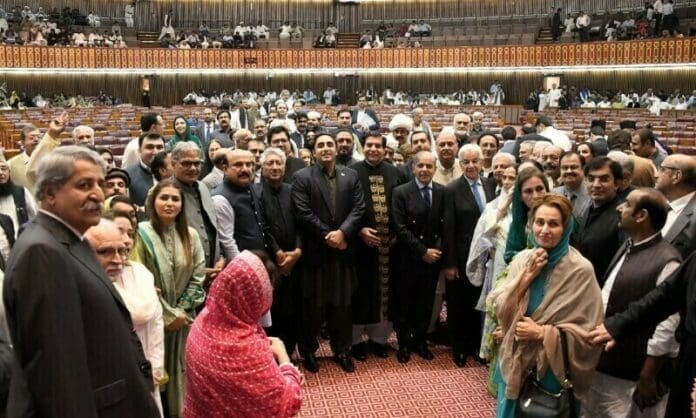ISLAMABAD: The Pakistan Institute of Legislative Development and Transparency (Pildat) has expressed concerns that the dissolution of the National Assembly prior to the completion of its term has left democracy vulnerable in the country. In their analysis of the performance of the 15th National Assembly, Pildat states that the elected representatives allowed themselves to compromise democracy instead of strengthening it during their five-year tenure. The hasty passage of controversial bills, such as the Official Secrets Act Amendment bill, further exacerbates the issue.
During its five-year term, the 15th National Assembly passed a total of 279 pieces of legislation. Unfortunately, this recent surge in hurried legislation has undermined the basic principles of democracy and human rights. Compared to the 14th National Assembly, there has been a 45% increase in legislative activity. The 15th National Assembly witnessed two governments, with Imran Khan serving as the Prime Minister from August 18, 2018, to April 10, 2022, and Shehbaz Sharif leading a coalition government from April 11, 2022, to August 09, 2023.
Pildat highlights that the PTI government heavily relied on ordinances for legislation, with 72 of the 75 ordinances laid in the National Assembly being promulgated by the PTI government. This is a significant increase compared to the 14th National Assembly, which passed and promulgated only 38 ordinances. In fact, the 15th National Assembly has passed the highest number of laws among the last three assemblies since 2002. Moreover, out of the 73 bills passed in the last three weeks of the 15th National Assembly, 36 were not referred to the concerned committees.
The performance of the National Assembly in terms of sittings and productivity has also been under scrutiny. The 15th National Assembly was convened for only 452 sittings during its five-year tenure, averaging 90 sittings per year. This is a decrease compared to the previous assembly, which had an average of 99 sittings per year. Additionally, the National Assembly only accumulated a total of 1,245 working hours, averaging 249 working hours per year. This represents a 21% decrease in productivity compared to the previous assembly. Furthermore, it is worth noting that each working hour in the National Assembly costs taxpayers approximately Rs24.23 million.
Out of the 15 legislatures in Pakistan, the 15th National Assembly is only the fourth to complete its full term. The attendance of the Prime Ministers during assembly sessions has also been lacking, with Imran Khan having an attendance rate of 11% and Shehbaz Sharif at 17%. The average attendance of Members of the National Assembly (MNAs) in the past five years was 61%, which decreased to 67% after the PTI’s decision to quit the National Assembly. Despite these attendance rates, the National Assembly frequently lacked the required quorum of around 25% of its members during sessions.
In conclusion, the outgoing National Assembly has been heavily criticized for weakening democracy in Pakistan. The hasty passage of controversial bills and the low attendance and productivity levels of elected representatives have raised concerns about the state of democracy in the country. It is crucial for future assemblies to prioritize strengthening democracy and upholding the principles of human rights.
